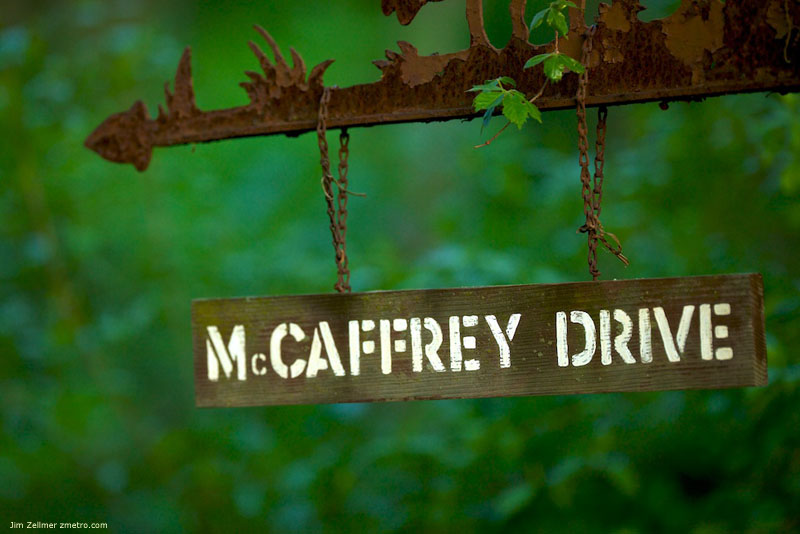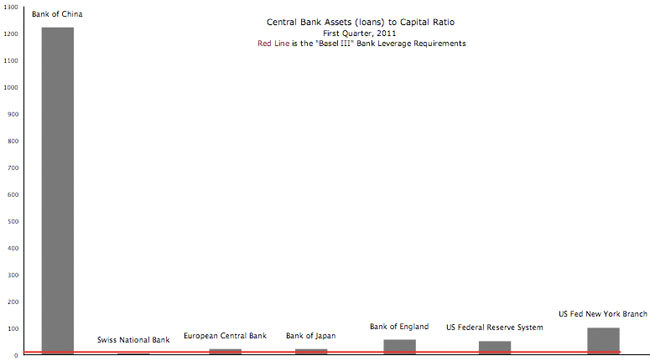







Category: Current Events
Lessons from war’s factory floor
The lowest point of the US occupation of Iraq was about five years ago. American forces had no effective strategy in the face of a street-level civil war and a particularly vicious insurgent group, al-Qaeda in Iraq. At Haditha, frightened and frustrated marines had killed 24 civilians. At Samarra, the Golden Dome mosque had been destroyed – a potent symbol of conflict between Shia and Sunni Muslims. Donald Rumsfeld, then defence secretary, appeared to be in an advanced state of denial, breezily waving away good advice, and in a notorious press conference shortly after the atrocity at Haditha, refusing to use the word “insurgent”, or to let the chairman of the Joint Chiefs of Staff use it either. The US strategy was failing and its leadership was determined not to change direction. It was a case study in organisational dysfunction.
Yet by 2008, the situation in Iraq had improved radically. Al-Qaeda in Iraq was in retreat, and the number of attacks, American and Iraqi deaths had fallen dramatically. Although the success remains fragile and there were other factors involved, a complete transformation of US military strategy deserves much credit.
How did it happen and what are the lessons for other organisations that need to turn around? The easy answer is that the solution was a change of leadership. Thanks to behind-the-scenes campaigning and a drubbing in the midterm elections for President George W.?Bush, Mr Rumsfeld was replaced, and General David Petraeus was put in charge of the war in Iraq.
Investing, Risk, Politics & Taxes: Global Central Bank Leverage

Source: Grant’s Interest Rate Observer, 5/20/2011 edition. Worth considering for financial & risk planning.
Related: Britannica: Central Banks and currency.
Basell III details: Clusty.com and Blekko.
More of God’s Floral Handiwork


Former Fed Vice Chair: Kohn ‘regrets’ pain of millions in financial crisis
The former vice-chairman of the Federal Reserve has said he “deeply regretted” the pain caused to millions of people around the world from the financial crisis, admitting that “the cops weren’t on the beat”.
Don Kohn’s apology for the actions of Federal Reserve in the run-up to the financial and economic crisis goes significantly further than the limited responsibility taken by his former boss, Alan Greenspan.
Speaking to British MPs at a confirmation hearing on Tuesday, Mr Kohn nevertheless said his experience would be valuable for the Bank of England, where he has been appointed to a new committee with powers to guide UK financial stability.
“I believe I will not make the same mistake twice,” he said.
Mr Kohn has been appointed to the Bank’s new Financial Policy Committee, which will soon have powers to change system-wide UK financial regulations and even limit borrowing by households and companies if it thinks there are threats to financial stability.
Having been a strong advocate of the Greenspan doctrine not to burst asset bubbles but to mop up any mess after a crash, Mr Kohn recanted much of his previous view in front of MPs. He said he had “learnt quite a few lessons – unfortunately” from the financial crisis, including that people in markets can get excessively relaxed about risk, that risks are not distributed evenly throughout the financial system, that incentives matter even more than he thought and transparency is more important than he thought.
The People vs. Goldman Sachs
A Senate committee has laid out the evidence. Now the Justice Department should bring criminal charges.
They weren’t murderers or anything; they had merely stolen more money than most people can rationally conceive of, from their own customers, in a few blinks of an eye. But then they went one step further. They came to Washington, took an oath before Congress, and lied about it.
Thanks to an extraordinary investigative effort by a Senate subcommittee that unilaterally decided to take up the burden the criminal justice system has repeatedly refused to shoulder, we now know exactly what Goldman Sachs executives like Lloyd Blankfein and Daniel Sparks lied about. We know exactly how they and other top Goldman executives, including David Viniar and Thomas Montag, defrauded their clients. America has been waiting for a case to bring against Wall Street. Here it is, and the evidence has been gift-wrapped and left at the doorstep of federal prosecutors, evidence that doesn’t leave much doubt: Goldman Sachs should stand trial.
This article appears in the May 26, 2011 issue of Rolling Stone. The issue is available now on newsstands and will appear in the online archive May 13.
The great and powerful Oz of Wall Street was not the only target of Wall Street and the Financial Crisis: Anatomy of a Financial Collapse, the 650-page report just released by the Senate Subcommittee on Investigations, chaired by Democrat Carl Levin of Michigan, alongside Republican Tom Coburn of Oklahoma. Their unusually scathing bipartisan report also includes case studies of Washington Mutual and Deutsche Bank, providing a panoramic portrait of a bubble era that produced the most destructive crime spree in our history — “a million fraud cases a year” is how one former regulator puts it. But the mountain of evidence collected against Goldman by Levin’s small, 15-desk office of investigators — details of gross, baldfaced fraud delivered up in such quantities as to almost serve as a kind of sarcastic challenge to the curiously impassive Justice Department — stands as the most important symbol of Wall Street’s aristocratic impunity and prosecutorial immunity produced since the crash of 2008.
The Most Interesting Man in the Senate: Rand Paul reshapes the national debate.
“What is so great about our bloated federal government that when a libertarian threatens to become a senator, otherwise rational and mostly liberal pundits start frothing at the mouth?” the old New Left columnist Robert Scheer wrote at Truthdig. “What Rand Paul thinks about the Civil Rights Act, passed 46 years ago, hardly seems the most pressing issue of social justice before us. It’s a done deal that he clearly accepts. Yet Paul’s questioning the wisdom of a banking bailout that rewards those who shamelessly exploited the poor and vulnerable, many of them racial minorities, is right on target. So too questioning the enormous cost of wars that as he dared point out are conducted in violation of our Constitution and that, I would add, though he doesn’t, prevent us from adequately funding needed social programs.”
The dead-enders of the Beltway left, however, continued to treat Paul like a mental patient. “By nominating a lunatic,” Center for American Politics blogger Matthew Yglesias wrote after Paul’s primary victory, “Republicans have suddenly taken what should be a hopeless Senate race and turned it into something Democrats can win. At the same time, by nominating a lunatic, Republicans have suddenly raised the odds that a lunatic will represent Kentucky in the United States Senate.” Nor was this sentiment confined to the left. “Rand Paul’s victory in the Kentucky Republican primary is obviously a depressing event for those who support strong national defense and rational conservative politics,” former George W. Bush speechwriter David Frum wrote at the time. “How is it that the GOP has lost its antibodies against a candidate like Rand Paul?”
Paul parries these attacks with a bemused but direct engagement; you can see he thinks he’s going to win a long-overdue David vs. Goliath argument. A good portion of his book is spent examining and decrying how the Republican Party became “tainted by neoconservative ideology,” mistaking “national greatness” for a willingness to intervene willy-nilly into the affairs of foreign countries, while tolerating big spending projects at home. “The Tea Party,” Paul claims, “is now a threat to the old Republican guard precisely because its stated principles prevent it from being brought into the neoconservative fold.”
Wikileaks Founder: Facebook is the most appalling spy machine that has ever been invented
Despite awaiting extradition to Sweden on sexual assault charges, Wikileaks founder Julian Assange is still the subject of much media interest.
Russia Today (RT) interviewed Assange, getting his viewpoint on political unrest in Egypt and Libya, particularly probing what the Wikileaks founder makes of social media’s roles in the recent revolutions in both countries. In his interview, Assange focuses particularly on Facebook calling it the “most appalling spy machine that has ever been invented”.
Seven tricky questions for Mr Buffett
Until this week, only one topic was off-limits for questions to Warren Buffett at Saturday’s annual gathering of Berkshire Hathaway shareholders in Omaha: how serious is the Dave Sokol affair?
On Wednesday, however, the company issued an 18-page report from its audit committee about the former star executive’s trading in shares in Lubrizol, a chemicals group later bought by Berkshire, and declared open season for all questions to Mr Buffett.
Here are my seven:
1. How serious is the Dave Sokol affair?
You are the world’s most famous long-term investor. Recently, Berkshire’s shares have lagged behind the S&P 500, but your record of outperformance over more than four decades speaks for itself. Even big, conservative bets, such as the 2009 investment in Burlington Northern Santa Fe railway, have been well timed. But Mr Sokol was a frontrunner to succeed you as chief executive. You lauded him regularly in your annual letter to shareholders. His abrupt resignation and the circumstances surrounding it seem to suggest that this is more than just a blip.
2. Do you love some of your managers too much?
The secret life of the start-up
IPlease respect FT.com’s ts&cs and copyright policy which allow you to: share links; copy content for personal use; & redistribute limited extracts. Email ftsales.support@ft.com to buy additional rights or use this link to reference the article – http://www.ft.com/cms/s/0/2fb4e250-6bc8-11e0-93f8-00144feab49a.html#ixzz1KJNrz2L0
f you were going to spend $2bn to improve the world, where would you put it? Forty-odd years ago, Ewing Marion Kauffman, a self-made billionaire from Missouri, was faced with just that choice. He took a rather unusual decision. Instead of using his self-made billions to battle homelessness or help the poor, he decided to chase the Great American dream. More specifically, he founded an institute, which takes his name, in Kansas City, to promote entrepreneurs and the entrepreneurial ideal. These days the Kauffman Foundation is one of the largest private foundations in America, topped only by groups such as the Ford Foundation or the giant Bill and Melinda Gates charity.
When I first encountered the Kauffman Foundation – which is barely known outside the US – I must admit I found the whole endeavour a little odd, if not ironic. After all, the usual image of entrepreneurs is that they go forth and boldly strike out on their own, without any paternalistic aid. And America, perhaps more than anywhere else, is supposed to epitomise the entrepreneurial dream; indeed, it is one thing that makes it so attractive.